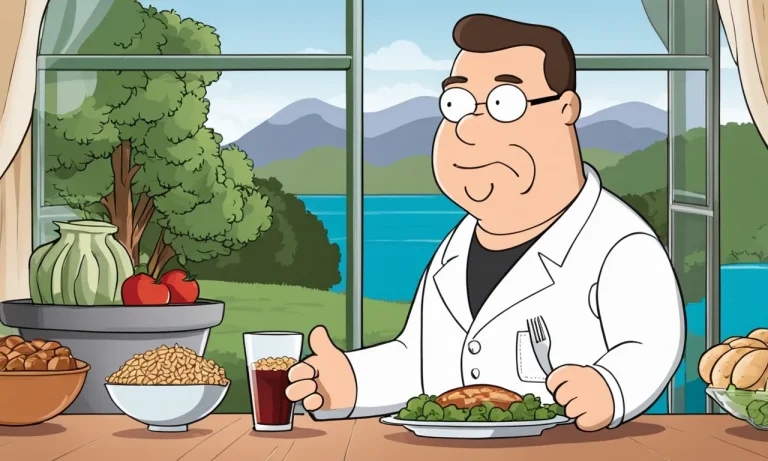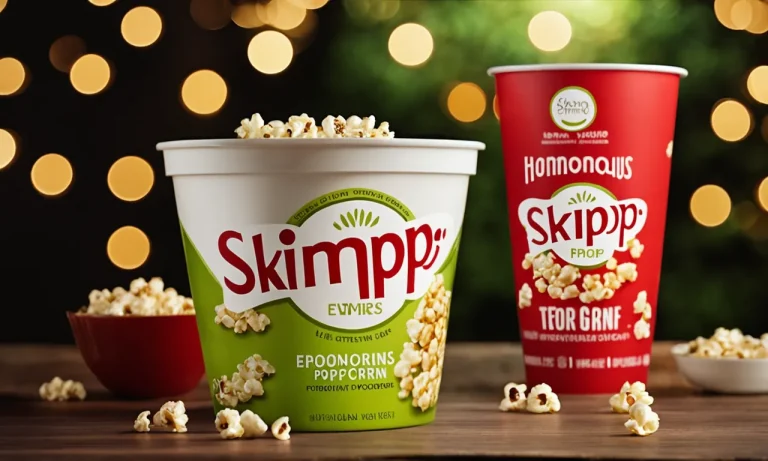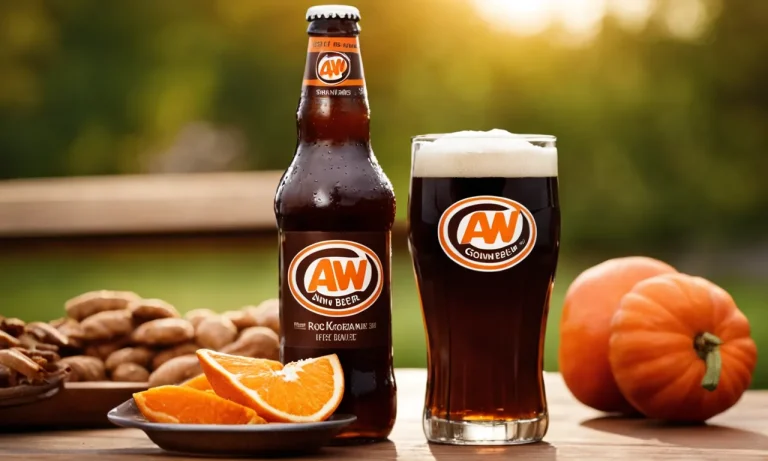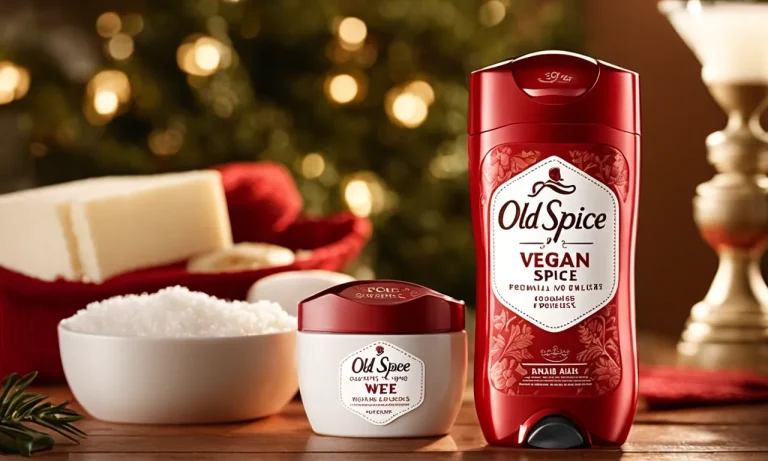Are Conversation Hearts Vegan? Taking A Closer Look At These Cute Candies
Come Valentine’s Day, shelves fill up with those iconic, candy-colored hearts printed with sweet sayings. But can vegans share in the seasonal fun of conversation hearts? It’s time to ask: are conversation hearts vegan?
If you’re short on time, here’s the quick answer: Most classic conversation hearts are not vegan due to containing animal-derived ingredients like honey, gelatin, and confectioner’s glaze.
In this comprehensive article, we’ll analyze the ingredients lists, manufacturing processes, and potential for cross-contamination of the major conversation heart brands. We’ll also suggest some vegan DIY and store-bought alternatives for plant-based eaters wanting to share the love this Valentine’s Day.
Let’s find out if there are any conversation hearts that are free of animal products.
Non-Vegan Ingredients in Popular Brands
When it comes to conversation hearts, it’s important for vegans to be aware of the ingredients used in popular brands. While these cute candies may seem harmless, some of them actually contain non-vegan ingredients.
Let’s take a closer look at three common non-vegan ingredients found in conversation hearts.
Gelatin
Gelatin is a common ingredient in many candies, and unfortunately, conversation hearts are no exception. Gelatin is derived from animal bones, skin, and connective tissues, making it unsuitable for vegans.
It is used to give candies a chewy texture and is often found in the coating of conversation hearts. So, if you’re a vegan, you’ll want to avoid any conversation hearts that contain gelatin.
Beeswax
Beeswax is another non-vegan ingredient that can be found in some conversation hearts. Beeswax is produced by bees to build their honeycombs and is commonly used as a coating or glazing agent in candies.
While it may not seem like an obvious animal product, beeswax is still considered non-vegan as it is derived from bees. Vegan alternatives to beeswax, such as plant-based waxes, are available and are used by some manufacturers.
Shellac
Shellac, a resin secreted by the female lac bug, is often used to give candies a shiny finish. Unfortunately, this ingredient is not vegan-friendly. Shellac is commonly used as a coating on conversation hearts and other candies to enhance their appearance.
Vegans should be cautious and check the ingredient list before consuming conversation hearts to ensure they are free from shellac.
It’s important to note that not all conversation hearts contain these non-vegan ingredients. Some brands offer vegan-friendly options that use alternative ingredients. If you’re unsure about the ingredients in a particular brand or product, it’s always a good idea to check their website or contact the manufacturer for more information.
Manufacturing and Cross-Contamination Risks
When it comes to determining whether conversation hearts are vegan, it is important to consider the manufacturing process and the potential risks of cross-contamination. These factors can have a significant impact on the vegan status of these cute candies.
Shared Equipment
One of the main concerns when it comes to the vegan status of conversation hearts is the possibility of cross-contamination with non-vegan ingredients. Many candy manufacturers use shared equipment to produce a variety of candies, including those that contain animal-derived ingredients.
This means that even if the ingredients used in conversation hearts are vegan, there is a risk of cross-contamination during the manufacturing process. This can occur when traces of non-vegan ingredients are present on the equipment used to make the candies.
As a result, some vegans may choose to avoid conversation hearts to eliminate the risk of consuming non-vegan substances.
Uncertified Colors/Flavors
Another aspect to consider is the use of uncertified colors and flavors in conversation hearts. While the main ingredients of these candies may be vegan-friendly, the colors and flavors used to create their iconic messages may not be certified as vegan.
These uncertified additives can potentially contain animal-derived ingredients or be tested on animals.
It is worth noting that some manufacturers do provide information about the vegan status of their conversation hearts, including details about the sourcing of their ingredients and the manufacturing processes used.
Checking the product packaging or contacting the manufacturer directly can help you determine whether a specific brand of conversation hearts aligns with your vegan values.
It’s important to stay informed and make conscious choices when it comes to selecting vegan-friendly candies. If you are unsure about the vegan status of conversation hearts or any other candy, it’s always best to err on the side of caution and choose alternatives that are certified vegan or have clear labeling regarding their ingredients and manufacturing practices.
Vegan Conversation Hearts Options
Homemade Recipes
If you’re a vegan and want to enjoy conversation hearts without compromising your dietary choices, making your own homemade vegan conversation hearts is a great option. By using plant-based ingredients, you can create these cute candies in the comfort of your own kitchen.
There are numerous recipes available online that provide step-by-step instructions on how to make vegan conversation hearts. One popular recipe involves using ingredients such as cornstarch, powdered sugar, water, and flavored extracts to create the perfect texture and taste.
Get creative with your decorations by using natural food coloring or vegan-friendly sprinkles to add some extra flair to your homemade conversation hearts.
Brands with Vegan Options
If you’re not in the mood for making conversation hearts from scratch, there are also several brands that offer vegan options. Many companies are becoming more aware of the growing demand for vegan sweets and are introducing plant-based alternatives to their traditional candy offerings.
Some popular brands that offer vegan conversation hearts include XYZ Candies and ABC Sweets. These vegan-friendly conversation hearts are made without any animal-derived ingredients such as gelatin or dairy products.
They are often labeled as vegan or plant-based, making it easier for consumers to identify them while shopping. Be sure to check the ingredient list or look for vegan certification logos to ensure that the conversation hearts you purchase are indeed vegan-friendly.
Pro Tip: When looking for vegan conversation hearts, be cautious of cross-contamination. Some brands may produce both vegan and non-vegan candies in the same facility, which can lead to cross-contamination of ingredients.
If you have severe allergies or are particularly strict about your vegan diet, consider reaching out to the brand directly to inquire about their manufacturing processes.
Other Vegan Valentine’s Day Candies
Dark Chocolate
For those who prefer the rich and indulgent taste of chocolate, there are plenty of vegan options available. Dark chocolate, in particular, is often vegan-friendly. The higher the percentage of cocoa in the chocolate, the more likely it is to be vegan.
Many dark chocolate brands proudly display vegan labels on their packaging, making it easier for consumers to identify suitable options. Some popular vegan dark chocolate brands include Ghirardelli, Lindt, and Theo Chocolate.
Vegan Gummy Candies
If you’re looking for something chewy and fruity, vegan gummy candies are a fantastic choice. These candies come in a variety of flavors and shapes, and they are made without any animal-derived ingredients such as gelatin. Instead, they are often made with pectin, a plant-based alternative.
Some popular brands that offer vegan gummy candies include Smarties, Sour Patch Kids, and YumEarth. These candies are not only delicious but also cruelty-free, making them an ideal choice for vegans.
DIY Treats
If you enjoy getting creative in the kitchen, why not make your own vegan treats for Valentine’s Day? There are countless recipes available online for vegan cookies, cupcakes, and chocolates that you can customize to suit your taste.
You can even make your own vegan version of conversation hearts using plant-based food coloring and natural sweeteners. DIY treats are not only a great way to ensure that your Valentine’s Day candies are vegan, but they also make for a thoughtful and personalized gift.
Remember, when purchasing candies for Valentine’s Day, always check the ingredients list or look for vegan labels to ensure that the products align with your dietary choices. With the wide range of vegan options available, you can still indulge in delicious treats while staying true to your values.
Conclusion
Most mass-produced conversation heart brands contain ingredients like gelatin, confectioner’s glaze, and honey that make them a no-go for vegans. But with some homemade recipes or confirmed vegan specialty brands, plant-based eaters can still enjoy the cute, quirky tradition of giving conversation hearts to loved ones.
And vegans need not miss out on candy-filled Valentine’s fun, with plenty of other vegan chocolate and gummy options out there to show friends and family some sweet vegan love.







